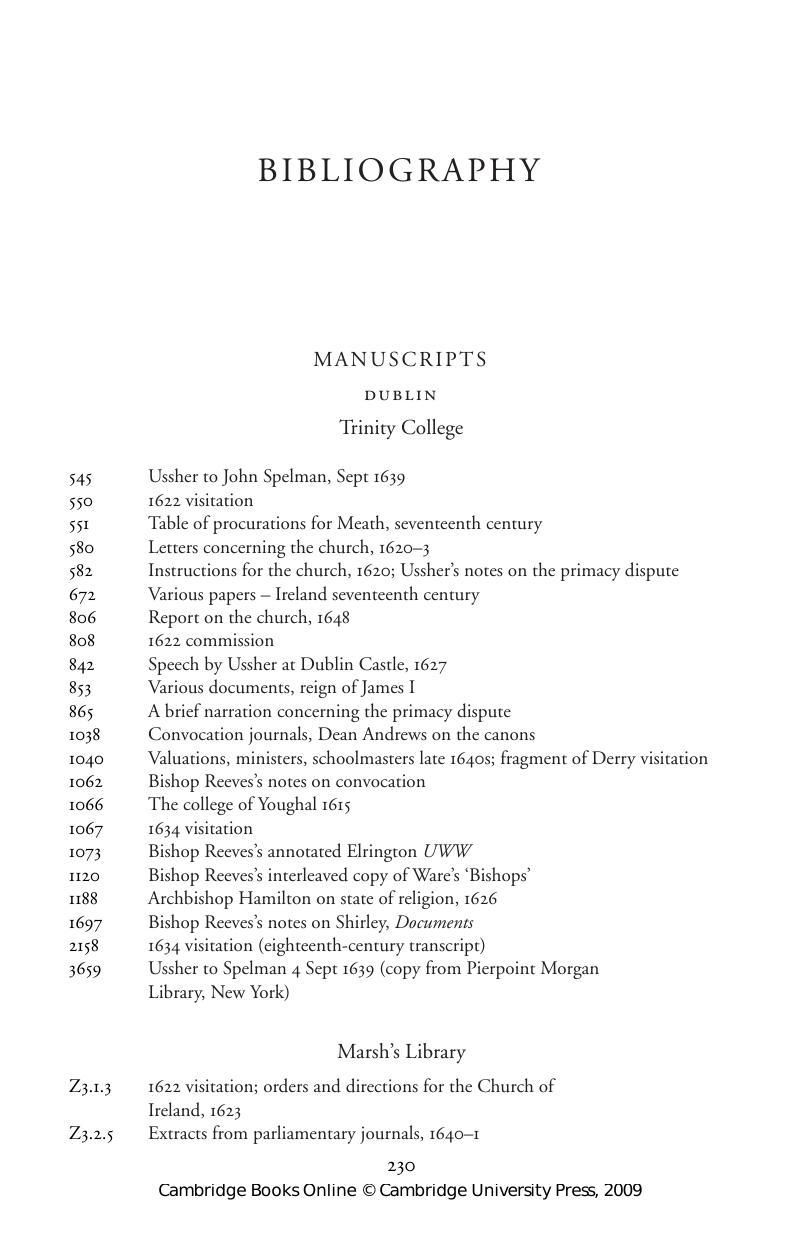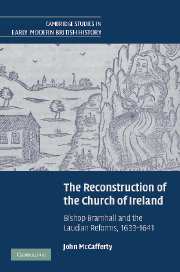Book contents
- Frontmatter
- Contents
- List of tables
- Acknowledgements
- Note on the text
- List of abbreviations
- Map: Church of Ireland dioceses, c.1636
- 1 Prologue: Ireland's English reformation
- 2 Raising up the Church of Ireland: John Bramhall and the beginnings of reconstruction, 1633–1635
- 3 English codes and confession for Ireland, 1633–1636
- 4 The bishops in the ascendant, 1635–1640
- 5 Enforcing the new order, 1635–1640
- 6 The downfall of reconstruction, 1640–1641
- 7 Conclusion: reconstruction as reformation
- Bibliography
- Index
- Titles in the series
- References
Bibliography
Published online by Cambridge University Press: 02 September 2009
- Frontmatter
- Contents
- List of tables
- Acknowledgements
- Note on the text
- List of abbreviations
- Map: Church of Ireland dioceses, c.1636
- 1 Prologue: Ireland's English reformation
- 2 Raising up the Church of Ireland: John Bramhall and the beginnings of reconstruction, 1633–1635
- 3 English codes and confession for Ireland, 1633–1636
- 4 The bishops in the ascendant, 1635–1640
- 5 Enforcing the new order, 1635–1640
- 6 The downfall of reconstruction, 1640–1641
- 7 Conclusion: reconstruction as reformation
- Bibliography
- Index
- Titles in the series
- References
Summary

- Type
- Chapter
- Information
- The Reconstruction of the Church of IrelandBishop Bramhall and the Laudian Reforms, 1633–1641, pp. 230 - 260Publisher: Cambridge University PressPrint publication year: 2007



